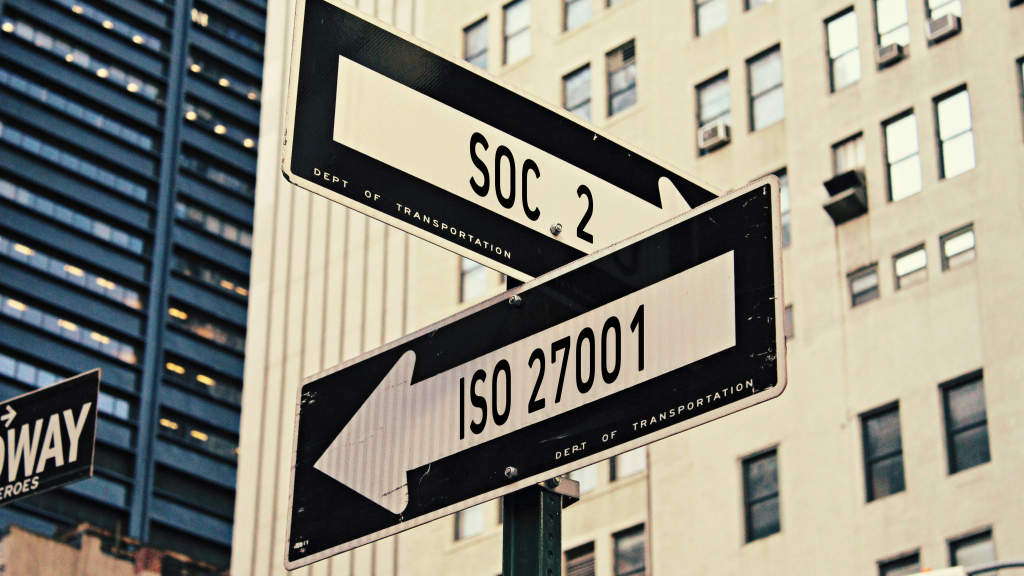SOC 2 Vs. ISO 27001: Key Differences & Best Choice For Your Business

Understanding the Importance of Security Compliance
In an era where cyber threats and data breaches are on the rise, businesses must adopt rigorous security frameworks to protect sensitive information. Two of the most recognised standards for information security are SOC 2 and ISO 27001. While both focus on safeguarding data, they serve different purposes and cater to distinct business needs. Understanding their differences can help organisations make an informed decision about which certification aligns best with their goals.
The Role of SOC 2 and ISO 27001 in Information Security
SOC 2 and ISO 27001 both aim to enhance security and trust, but they differ in their approach:
- SOC 2 is an audit-based framework designed for U.S.-based service providers, emphasising security controls related to customer data management.
- ISO 27001 is a globally recognised standard for Information Security Management Systems (ISMS), providing a structured methodology for managing and mitigating security risks.
Businesses must evaluate their industry, customer expectations, and regulatory requirements before choosing the right compliance framework.
Risk Management and Security Frameworks
One of the key elements of both SOC 2 and ISO 27001 is risk assessment and mitigation. However, they approach it differently:
- SOC 2 assesses an organisation’s security posture based on predefined Trust Services Criteria, including security, availability, processing integrity, confidentiality, and privacy.
- ISO 27001 requires organisations to establish a comprehensive ISMS that includes:
- Identifying security threats and vulnerabilities
- Assessing risk levels and implementing mitigation strategies
- Continuously monitoring and improving security processes
While SOC 2 is more flexible and tailored to an organisation’s specific security controls, ISO 27001 follows a structured, risk-based approach to security management.
Strengthening Data Protection and Access Control
Protecting sensitive data from unauthorised access is a critical component of both standards. Organisations following either framework implement:
- Access control policies to restrict unauthorised users
- Encryption techniques for securing data at rest and in transit
- Audit logs and monitoring systems for tracking security incidents
ISO 27001 mandates a continuous improvement cycle (Plan-Do-Check-Act), ensuring that security measures evolve with emerging threats. SOC 2, on the other hand, focuses on proving an organisation’s security controls through independent audits.
Compliance, Certification, and Customer Trust
The choice between SOC 2 and ISO 27001 often depends on compliance needs and customer expectations:
- SOC 2 certification is commonly required by U.S. businesses, particularly SaaS companies and cloud service providers, to demonstrate security controls to clients.
- ISO 27001 certification is internationally recognised, making it ideal for businesses operating globally that require a structured and auditable security management system.
- Some companies pursue both certifications to enhance security credibility and expand their market reach.
Incident Response and Business Continuity
Cybersecurity incidents are inevitable, and both SOC 2 and ISO 27001 emphasise incident management:
- SOC 2 requires organisations to have defined processes for detecting and responding to security breaches.
- ISO 27001 mandates a formal incident response plan, including:
- Defined roles and responsibilities
- Rapid detection and mitigation strategies
- Business continuity and disaster recovery planning
By implementing these measures, businesses can reduce downtime, minimise financial losses, and strengthen resilience against cyber threats.
Choosing the Right Framework for Your Business
The decision between SOC 2 and ISO 27001 depends on various factors:
- If your organisation handles customer data and operates in North America, SOC 2 may be the right choice to assure clients of your security controls.
- If your business requires a globally accepted, structured security management system, ISO 27001 is the better option.
- For maximum credibility, pursuing both certifications can provide a competitive advantage by demonstrating a strong commitment to security.
Strengthening Security with the Right Compliance Approach
SOC 2 and ISO 27001 are not just compliance checkboxes—they are strategic frameworks that enhance security, build customer trust, and protect businesses from cyber risks. By carefully assessing business needs, industry standards, and customer expectations, organisations can choose the right path toward a more secure and resilient future.




